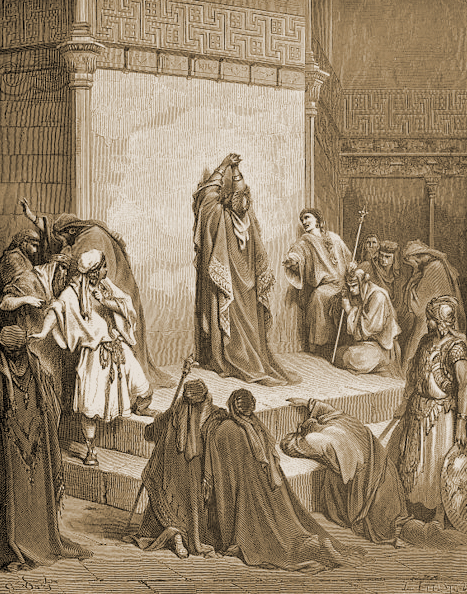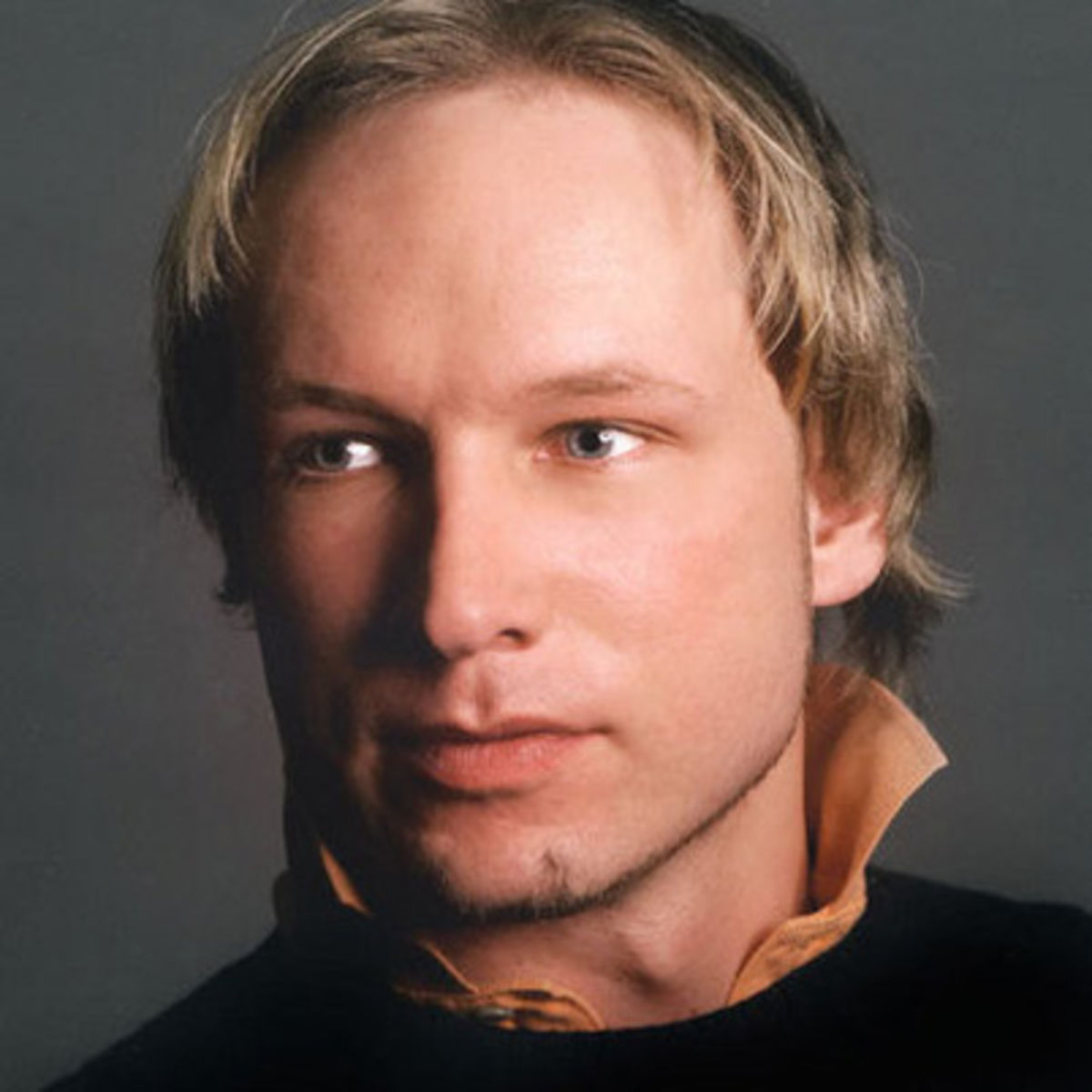Below, translated excerpts from the first chapter of Karlheinz
Deschner’s Kriminalgeschichte des Christentums
(“Criminal History of Christianity”):
The ravages of David and the modern translators of the Bible
Samuel, the last judge and first prophet of Israel, fought against the Philistines and defeated them but then, feeling old, anointed Saul as army commander and ordered him in God’s name:
“Now go, attack the Amalekites and totally destroy all that belongs to them. Do not spare them; put to death men and women, children and infants, cattle and sheep, camels and donkeys.”
The Catholic encyclopedia of many volumes, Lexikon für Theologie und Kirche annotates that the prophet in question was a character “without blemish” and goes even further in praise of his successor: “A great effort in defending the theocracy, the law and the right, was the major garment of character in Saul.” And this king, the first of Israel (1020-1000 BCE) anointed by Samuel, figures typically as a “charismatic” who acted through “the spirit of the Lord” and yet, “was obviously a psychotic depressive, tormented by persecution” (Beck) who energetically continued the tradition of “holy wars.” As the Bible tells, Saul fought “many enemies around him”: Moabites, Ammonites, Edomites, the kings of the Philistines and Amalekites. Of course, when according to superior orders they killed all the Amalekites including the infants, but kept the best cattle, he incurred in the wrath of both the Lord and the prophet Samuel, after which he suffered a tremendous defeat at the hands of the Philistines and committed suicide (by the way, this is the first act of this kind mentioned in the Bible).
His successor, David, name that means the chosen one (of God), who bought as wife Saul’s daughter, Michal, for the price of a hundred Philistine foreskins, towards the end of the millennium heralded the beginning of the national state, thus achieved the maximum period of splendor for Israel, which possessions came then from the middle Syria to the borders of Egypt and was the strongest nation among the great empires of Mesopotamia, Hamath and Egypt.
As had happened with Saul, David (1000-961 BCE) was also possessed by “the spirit of the Lord” and made a campaign after another, as many were “oppressors” from the north. And so David said in his hymn of thanksgiving: “I will pursue my enemies, exterminate them; will not turn my back until they are wiped out. I will consume and shatter them all, so they can no longer recover.” “But he never started a war”—St. Ambrose hastens to add, doctor of the Church—without first asking advice of the Lord.
David is admired not only in Jewish theology, but also in Christianity and Islam as a person of outstanding religious significance. “Whenever he went on campaign, David did not leave a man or woman alive… so did David when he dwelt in the land of Philistines.” Other customs of the Lord’s chosen included to cut off the horses’ tendons of the enemy; once he also cut the hands and feet of the enemies themselves. Another hobby of “the divine David, great and softest prophet” (according to bishop Theodoret, a Church historian) was to grind prisoners with saws and iron tongs and burn them in brick kilns, as he did to the people of all cities of the Ammonites.
It is relevant to remember that, in 1956, the Council of the German Evangelical Church and the Union of Evangelical Bible Society agreed in the publication of a Bible “according to the version of Martin Luther in German,” an authorized edition in 1964 and published in 1971, which reproduces as follows the passage just quoted thus: “to the people he brought them out, and put them into slave labor with saws and axes of iron, and brick kilns.”
However, Martin Luther had translated it thus:
“To the people he took away and commanded them to be sawn, passing iron drays, and butcher them with knives, and toss them in the brick kilns.”
This passage corresponds to one of the 1st Book of Chronicles (20,3), where the above Bible authorized by the Council of the German Evangelical Church, “according to the version of Martin Luther,” says, “whose inhabitants he took away, and put them down in labor servitude in the trails, saws and harrows.” But the words Luther chose were:
“Whose inhabitants he took out, and made that drag harrows and chariots armed with cutting scythes ran over them, so that they were made pieces and shattered.”
The approved Bible is a fabrication, and responds to a certain method.
In the course of the last hundred years, the Evangelical Church has proposed no less than three reviews of the Lutheran Bible. Luther did not suspect that his spiritual heirs would amend his words so flatly, so widely—he, whose motto as a translator was that “words must serve the cause, not the cause serve the words.”
When the Evangelical Church announces a Bible “according to the version of Martin Luther in German language,” it actually is selling a gross forgery. Anyway, if the ancients, being idolaters, had been made slaves surely they would not have run a more enviable fate, even the noncombatants as reported by the archaeologist Glueck, who excavated the ruins of Eilat. His report on the slaves who worked in brick kilns was that “the rate of mortality must have been terrific.”
In the Bible, a man named Shimei curses David calling him a “bloodthirsty” and throws stones upon him. Erich Brock and a few others have opined that the words were uttered “for good reason.” Even the Lord himself confirms it: “You have shed much blood, and done many wars.” But yes, it is always “with the Lord,” always moved “by the will of the Lord”; hence, no doubt, “pleased, the Lord watched David” for example after passing on the knife “twenty-two thousand Syrians” or after a massacre of “ eighteen thousand” Edomites. “Do whatever inspires your heart, for God is with you,” he says in another place.
But if God praised the “bloodthirsty” David for keeping his commandments and walk always in the shadow of the Lord, doing only what would please him, and if David praised himself, he is also praised forever, tireless, by the Christian clergy: a clergy that, as I will try to argue, in all ages has been in favor of the great criminals of history if they are useful to the Church. The same bloodthirsty king was the first to encourage the clergy as he could, and so he has set an example for millennia: for being faithful to the Lord, for making war in the name of the Lord, for sanctifying the loot destined to the construction of the Temple. (He who tried to hide the contribution was exposed to the extermination of his entire family, livestock included.)





